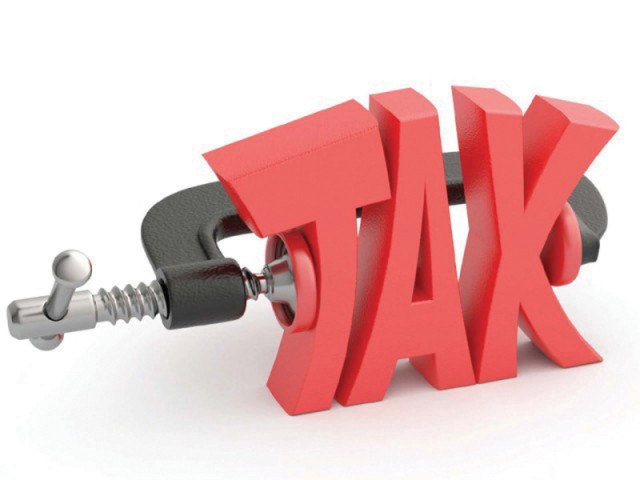Pakistan misses tax receipt target
FBR manages to restrict tax collection shortfall to Rs386b

Pakistan has missed the International Monetary Fund (IMF) condition of collecting over Rs6 trillion in taxes during the first half of this fiscal year and fell off the mark by Rs386 billion.
Despite a single-digit nominal growth due to lower-than-projected inflation, the Federal Board of Revenue (FBR) still posted a 26% increase in taxes during the July-December period and could not be blamed for missing the target.
However, the government missed the IMF target to collect at least Rs23.4 billion from traders from July to December under the Tajir Dost Scheme. The tax collection trend shows that the government should ask the IMF to reduce the target instead of accepting any demand for mini-budget.
Against the target of Rs6.009 trillion, the FBR provisionally collected Rs5.623 trillion by the end of December, which widened the shortfall to Rs386 billion.
The growth in collection was 26% against the required pace of 40%. The FBR collected Rs1.16 trillion more than last year, which was not a small feat in an economy growing at less than 1% in the first quarter.
The FBR had to resort to taking massive advances, mostly of the income of the third quarter (January-March) period, to reach closer to the unrealistic target, according to the sources.
It took about Rs89 billion advances on Monday -the second last day, they added. Most of these advances were taken in Karachi.
The Rs277 billion total collection on the last day of the month -Tuesday - was unparalleled. On the last day, the FBR received Rs207 billion in income tax alone.
The 26% growth was not less compared to average inflation of 8%.
But the government’s taxation measures and wrong assumptions to set the annual target of nearly Rs13 trillion were bringing authorities under pressure.
FBR Chairman Rashid Langrial said that despite the tax shortfall, the department did not block refunds and paid Rs70 billion in December alone against Rs38 billion last year. He said that it was the highest refund payment in a month.
Overall, the FBR paid Rs275 billion in refunds during the first quarter of this fiscal year, compared to Rs234 billion last year.
The chairman said that the tax-to-GDP ratio increased to 10.8% in the first half, which was better than the IMF’s annual target of 10.6%.
The IMF had set the target of Rs6.009 trillion and said that in case the government missed the goal by a margin of 1%, or Rs61 billion, it would not be required to take any additional revenue measures. But the gap remained high, exposing the authorities to the risk of another budget.
“When the IMF mission will come, we will have a discussion with them in good faith, as we are making every possible effort to get to the target,” said the finance minister while responding to a question as to whether he would bring a mini-budget or seek reduction in the tax target.
“I am hopeful that the IMF programme will continue,” he said, adding that the government was not backing off from any commitment given to the IMF.
The FBR also missed December’s tax target by Rs46 billion, but the shortfall was far lower than initial estimates.
Prime Minister Shehbaz Sharif said last month that there was trillions of rupees worth of tax evasion in collusion with taxmen, but he said that it would take time before the issues were resolved.
During its unscheduled emergency talks, the IMF last month pointed out the falling tax revenues as a major area of concern. This came despite the imposition of a record Rs1.4 trillion worth of new taxes, mainly burdening the salaried class and the corporate sector.
The IMF has decided that it will ask Pakistan for bringing a mini-budget after analysing the end-December data. The IMF’s point of view was that direct tax collection remained on track but there were serious issues in achieving targets of three indirect taxes – sales tax, federal excise duty and customs duty.
The IMF compelled the country to slap new taxes, mainly burdening the salaried class, levying taxes on every consumable good including medical tests, stationary, vegetables, children milk, etc.
For the July-December period, the FBR missed targets of sales tax, federal excise duty and customs duty but it exceeded the income tax target.
Details showed that income tax collection amounted to Rs2.78 trillion during the first six months of this fiscal year, which was Rs625 higher than the previous year. The six-month target was Rs2.524 trillion, which the FBR exceeded by a margin of Rs256 billion.
The direct taxes are now equal to nearly half of the total collection mainly because of new taxes.
Sales tax collection remained at Rs1.9 trillion, higher by 384 billion or 25% compared to the previous year.
However, the FBR missed the six-month target by a wide margin of about Rs179 billion. The target was Rs2.277 trillion.
The FBR collected Rs347 billion in federal excise duty, which was Rs82 billion higher than the previous fiscal year.
The government missed the excise duty target by a wide margin of Rs107 billion despite doubling the duty on cement and imposing the duty on lubricant oil and sales of plots and buildings in the budget.
The FED target was Rs454 billion.
The collection on account of customs duty stood at Rs598 billion, up by Rs59 billion. The government missed the six-month customs duty target by Rs156 billion. The target was Rs754 billion.




















COMMENTS (1)
Comments are moderated and generally will be posted if they are on-topic and not abusive.
For more information, please see our Comments FAQ